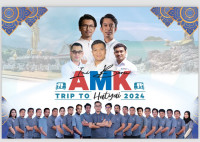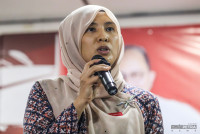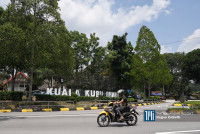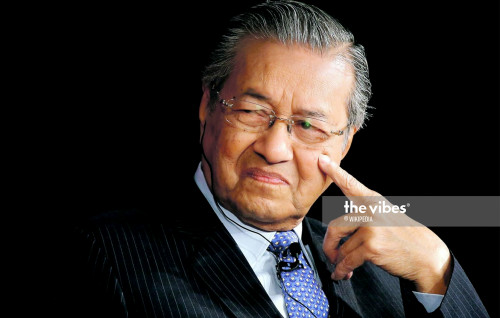NOT everyone can eloquently highlight the hypocrisy of superficial living as punchily as rapper-turned-producer Altimet, who is famously known for spitting lines in his native tongue.
The magnitude of his social commentary has proven how Malay rap has become more relevant in depicting the zeitgeist of Malaysian society.
At 42, Altimet – whose real name is Syed Ahmad Syed Abdul Rahman Alhadad – has collected a slew of accolades under his belt. In March, the Malay rap song 'Eh' by female rapper Zizi Kirana, which he co-wrote, clinched the best performance awards at the 35th Anugerah Juara Lagu.
Just three years ago, Altimet’s song ‘Amboi’ – a scathing social critique of poor work ethics and materialism plaguing his community – won the same award.
A quick search on YouTube will reveal the millions of streams his music videos and songs have garnered over the years.
And with four studio albums churned out over the last 14 years, a laundry list of singles, and collaborative tracks, Altimet notes that his musical journey of amalgamating contemporary rap with Malay elements was not always set in stone.
It’s also important to note, however, that while Altimet is not a pioneer in Malaysian rap in the same way his predecessors such as KRU, 4U2C, and Nico are, he is no less an iconic innovator of Malay rap in his own right.
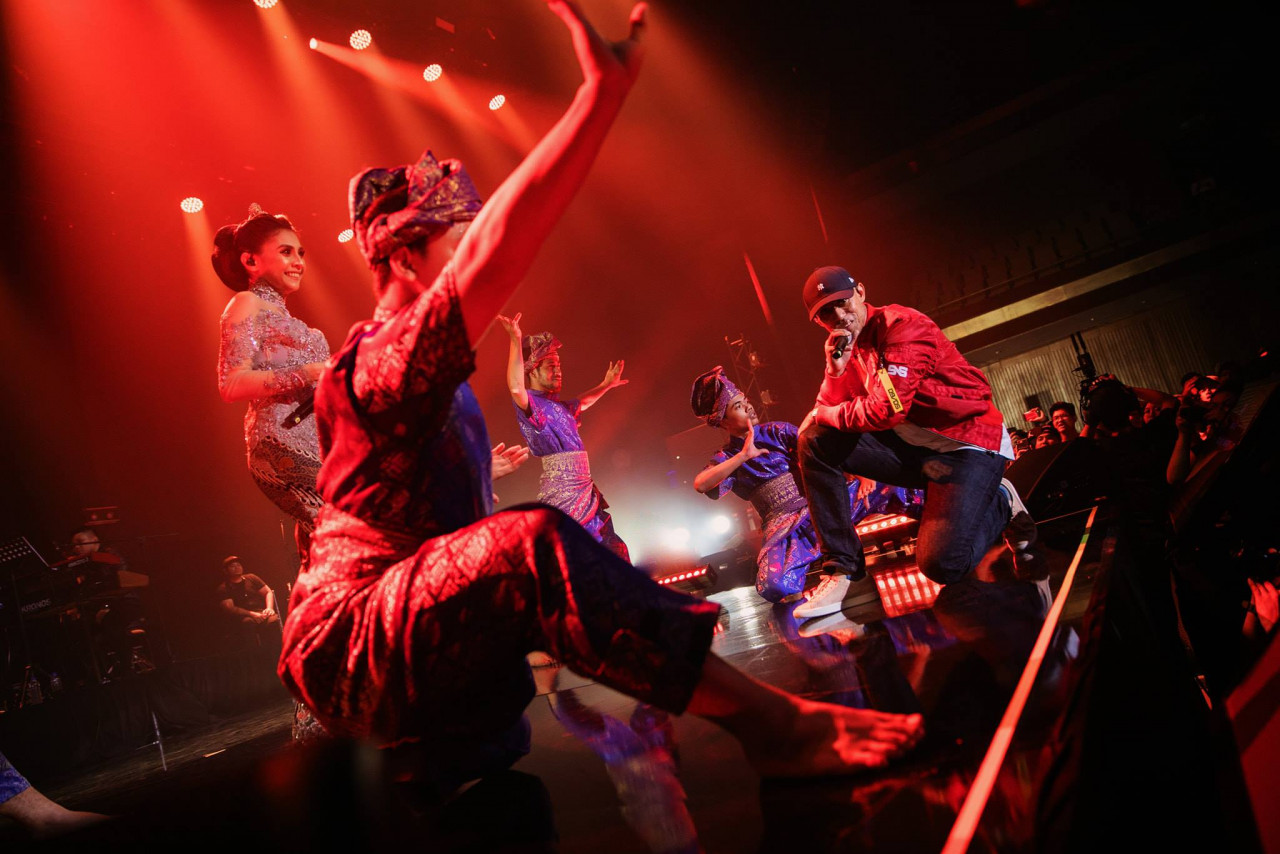
Reconciling hip-hop with Malay culture, identity, and tradition
Kickstarting his musical career in the group Teh Tarik Crew in 1999, Altimet made his solo album debut with ‘First Among Equals’ in 2007. In 2014, he returned with his sophomore album ‘Kotarayaku’, followed by ‘Air’ and ‘O’ in 2018, months before he announced his retirement as a performing musician.
Reflecting on his illustrious career, he told The Vibes recently that as much as the western-derived hip-hop was in stark contrast to Malay culture, the two have somewhat reconciled in his art.
“We have to reconcile that because globalised culture tends to be western driven. You have to reconcile them and take the best of both worlds,” Altimet, a father of three children, said.
“In the Nusantara (region), we have craftsmen who don't measure when they want to build. Our people, when they draw, they don't measure. The man who makes boats in Terengganu does not measure, but the thing happens. And it's a fully operational piece of equipment – it's the same with houses.
Asked about his formula and reasoning for incorporating the Malay identity, culture, and traditions into hip-hop, Altimet points out that the genre has always been derivative.
“You got to look at hip-hop as a whole, and where it came from. Hip-hop is like a ‘Frankenstein’ monster in terms of genres. It borrows so much from a lot of different genres,” Altimet explained.
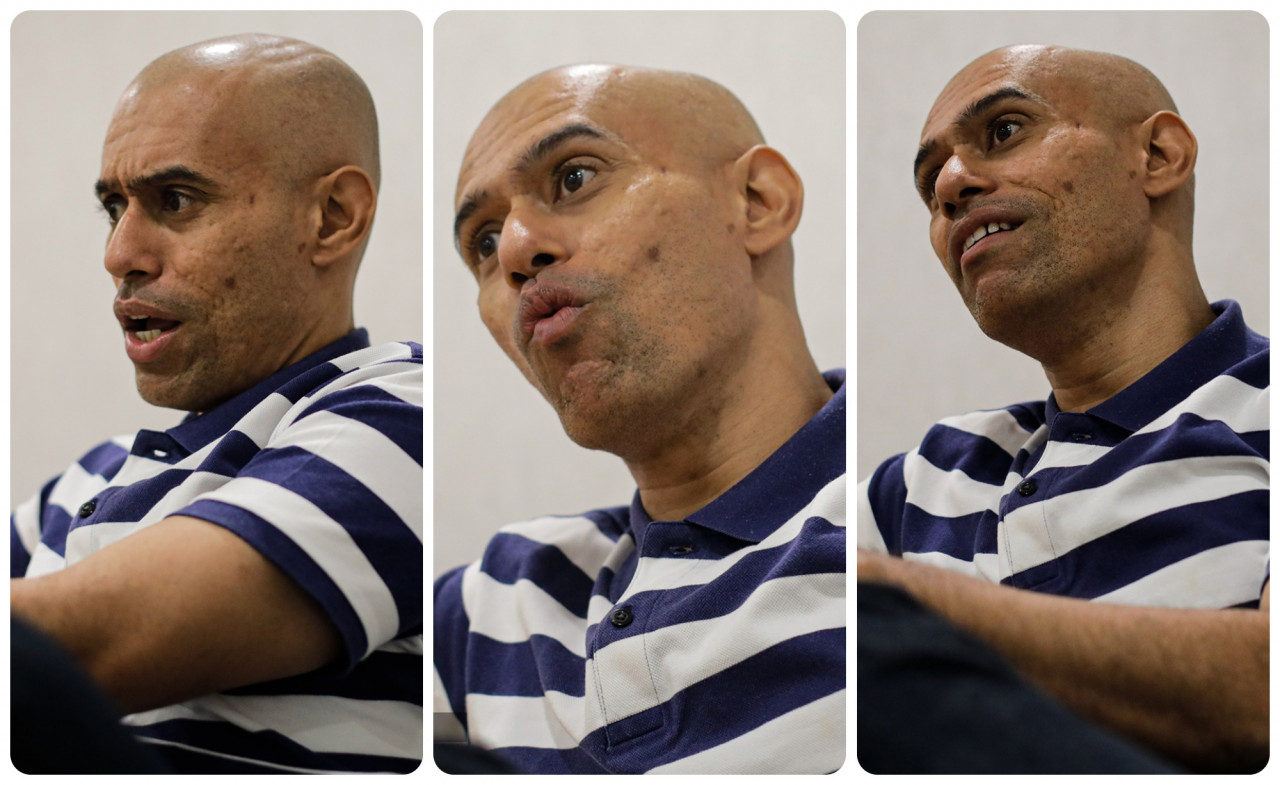
Hip-hop, which proliferated in the United States in the 1980s, had combined elements of dance hall, blues, reggae, and even the Latino subgenre Boogaloo, as well as Jazz and Funk music, among others, he notes.
He says this made it easier to “inject” his culture in the “DNA” of hip-hop, as done by many of his contemporaries who mishmash the genre with various styles of Asian music, hence making hip-hop readily adaptable.
“In terms of that, pop music has finally met its match in being something that is evolving faster and being more adaptable than pop music itself. So that's what I see now, it is exerting a lot of influence on pop music.”
Altimet, who hailed from Subang but now lives in Ampang, says this is where copious amounts of ‘sampling’, or extracting recorded song hits or material from other sources, came into play.
“You had a bunch of creative kids who wanted to express themselves, who wanted to make music. But they do not have the instruments. Their parents can't afford instruments. They cannot afford music class,” he said.
“So what did they do? They make it like necessity is the mother of invention. They took what was around them and they turned a music player (turntable) into a musical instrument.
"So what other materials do they have around them? They had their parent's record collection. And that's why they used to make music. And that's why hip hop has got a lot of funk, jazz, disco and all that.”
Altimet said his hip-hop idols in the west had always looked at their heritage, with many of them drawing influences from the likes of Otis Redding, Miles Davis, and James Brown, whose work had been sampled in hip-hop songs.
Creative process
Altimet notes that the creative process in making Malay rap songs digestible for a mass audience involved plenty of research and development.
“It's a lot of unlearning and a lot of relearning. You unlearn creating in one language to relearn creating in another language, or creating and in another paradigm because that's what hip-hop is,” he said.
“These are a bunch of kids who did not know, or did not want to sing. So they vocalise in a more rhythmic fashion, as opposed to more melodic.”
Nevertheless, in churning out rap songs, there were also times in his development where critics said his material could never reach the quality as the genre’s originators in the US.
But Altimet likened this to the process of learning to walk, which could be “sloppy” or “clumsy”, and not aesthetically pleasing.
He said eventually, rappers in Malaysia had learned the ropes of making rap songs in Malay, with some doing it in more aesthetically pleasing ways compared to others.
“We can all rap, but not anybody can rap well. We can all write. But not everybody can write well,”
Asked whether he believed it was important to embed one’s own culture in their musical craft, Altimet said incorporating identities into artistic work was significant to him.
“It will depend on the factors that you can attribute to your social identity, your physical, geophysical location, and racial and economic factors that come into play,” he said.
“It's important because we are in the business of creating something out of expressing ourselves. Hip-hop is personal. Hip-hoppers are actually singer-songwriters."
Altimet said this was why they must have sincerity in their craft.
“You talk about yourself. You talk about what you're going through, it's all the hallmarks of rappers and making hip-hop music. You just go to express yourself and be true to yourself.”
Rapping social issues
In many sense, rap is seen as a weapon in expressing social and political issues. And while this may not be reflected on the airwaves of mainstream radio, Altimet – who recently joined Parti Keadilan Rakyat (PKR) – says that it should get more attention.
He noted that hip-hop pioneer Chuck D, of the group Public Enemy, said: “rap is the ghetto's CNN.” “Hip-hop is ‘lagu rakyat’ (the people’s songs). But when you think about lagu rakyat, you think about Noraniza Idris, you think Siti (Nurhaliza), you think ‘Cindai’. So, to refine the idea a bit more, (hip-hop) is lagu rakyat kota raya (urban people’s songs), because that's urban folk music,”
Interestingly, Altimet considered the late Datuk Sudirman Arshad to be Malaysia’s “first hip-hop artist”, owing to his heartland or working-class songs. He says rappers, as observers, were also those who sang about “what their people go through”.
“There is a reason why 50 Cent raps about drugs and guns – because that's what his people are going through. That's what he sees daily at that time.
“Look at what Jay Z used to talk about early on. And now he raps about venture capitalism because that's what surrounds him now. He raps about his kids. So it's the same thing here. If that's what is around you and you feel that you want to speak about it, you want to speak on it, you want to speak to or on the behalf of certain people, the people around you, then go for it.”
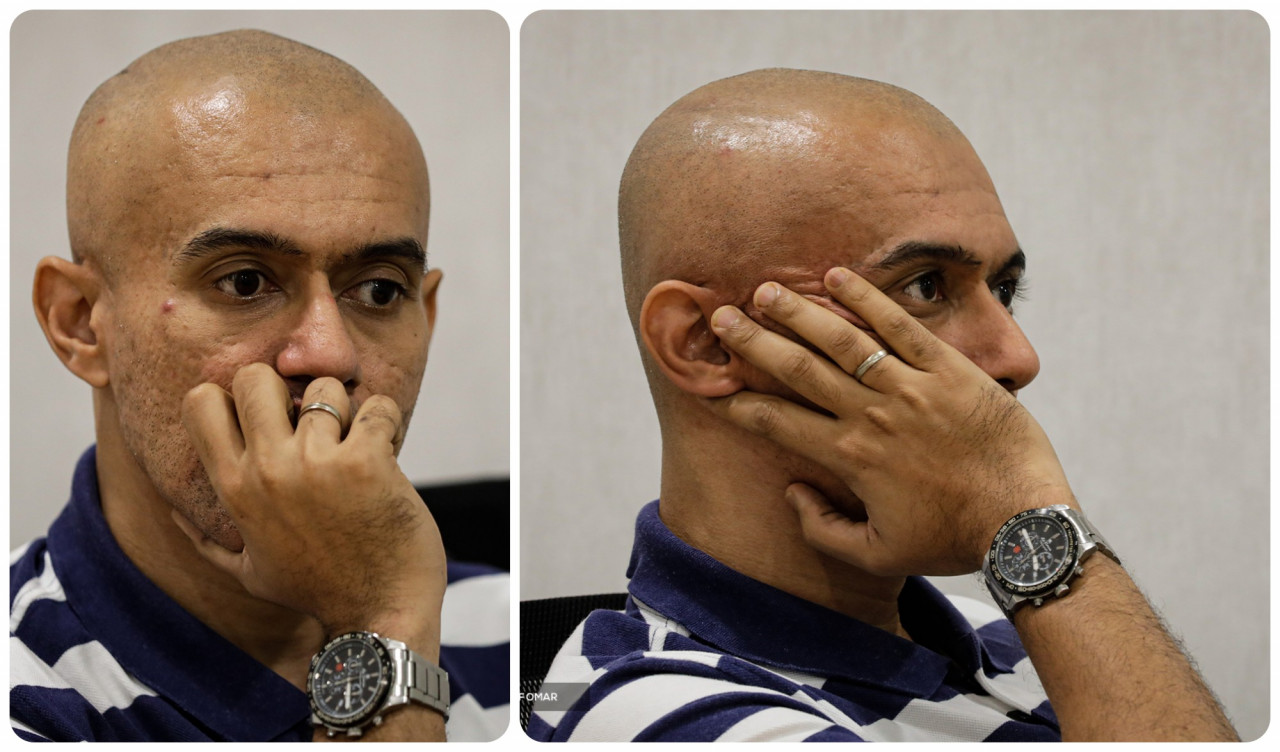
Altimet also recalled a time when rap was becoming popular, but several quarters criticised it for not being local culture and “forgetting” local tradition.
“But what I saw was different because my role models look up to their culture, to their heritage,” he said. “So for one, these (hip-hoppers) are the people that taught me to go and study about Zapin, study about Joget or Inang. It's because of hip-hop.”
And although he’s touted rap as songs for the people, Altimet admits that it does come with its flaws, such as explicit lyrics, violence, and misogyny, but this stems from poverty.
On his recent entry in PKR and whether he thought it was important for artists to be actively involved in politics, Altimet says it is a matter of personal choice.
“I think that they (artists) should be more aware of what's going on in the world, and more economically aware, more financially aware.
“I know it's all boring stuff for them, but there is a correlation, because the state of politics in any area, or any community will affect the economy.” He also acknowledged that artists who supported opposition parties were often sidelined from getting government-related jobs or shows.
“That's why people in the entertainment industry have been directly or indirectly discouraged from actively being involved in politics,” he said.
“If you support the opposition party, you won’t get a job (with them). It's been said directly or indirectly to us, it's become a culture in the entertainment industry.” – The Vibes, June 27, 2021



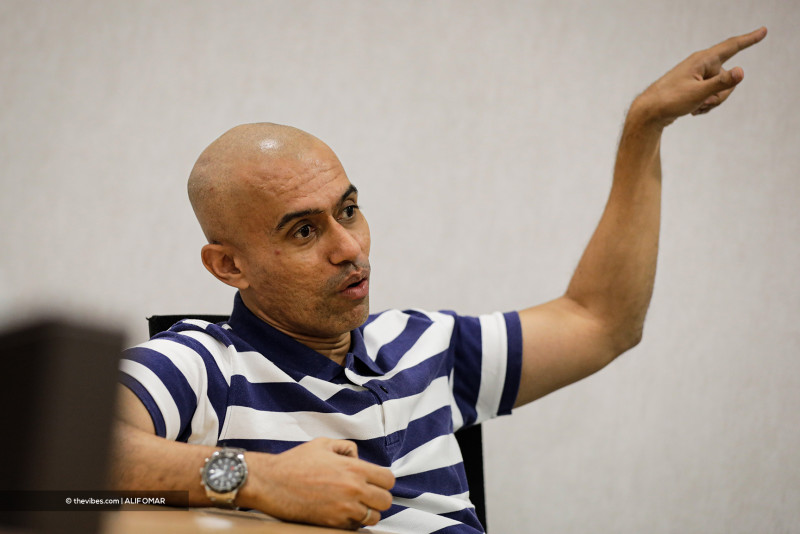



.JPG)

